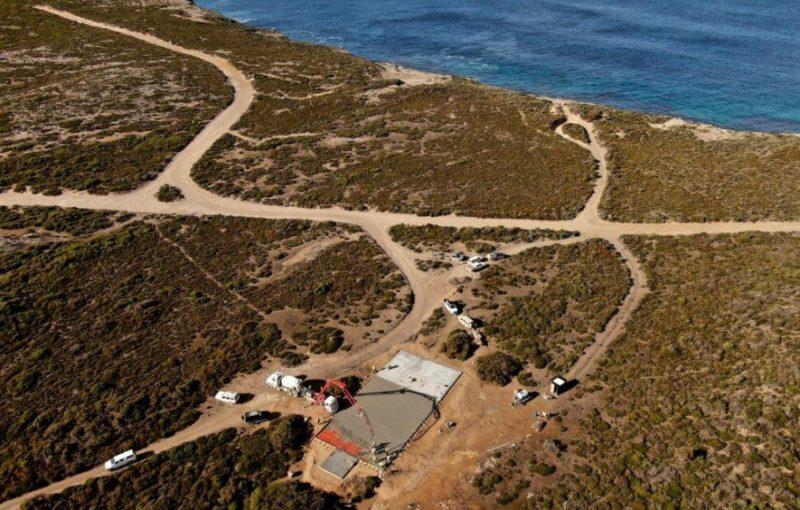
In December 2020, Indonesia’s President Joko ‘Jokowi’ Widodo offered West Papua’s Biak island as a satellite launch site for Elon Musk’s SpaceX program. Jokowi was courting the entrepreneur after deciding that investment and technology exchange from Musk’s Tesla was key to Indonesia’s goal of becoming a world-leading supplier of electric-vehicle batteries, harnessing its extensive nickel resources.
While Indonesia’s space agency, LAPAN, may dream of launching rockets, offering Biak seemed more of a deal-sweetener to secure the investment than a genuine commitment. In any event, Tesla is signing on to Indonesia’s EV battery dream, and the question remains: what about Biak?
The island, to the north of Papua, offers an ideal location for efficient equatorial launches at only 1° south of the equator. But as a large-scale, long-term launch site for a growing program like SpaceX, it has major problems that may send Musk searching elsewhere.
First, the island’s isolation and poor infrastructure would inhibit both the building process and operations. It lies in one of Indonesia’s least developed regions and, logistically, it would be difficult to access and service.
In terms of human resources, systemic education gaps in Biak would limit the number of workers who could be employed locally, necessitating a fly-in, fly-out workforce which would create a division rather than engagement between this foreign-owned space venture and local residents.
Moreover, Biak’s residents are fiercely resisting space developments on the island, just as they did when Russia’s Roscosmos space agency sought to build on the island in 2002. They fear displacement and environmental degradation, including deforestation.
Community leaders have warned that large-scale developments would pollute and disturb local ecosystems, including dense forests and nearby fishing areas, threatening livelihoods and the island’s overall food security. Local subsistence practices, including gathering and fishing, remain key for many of the island’s more than 100,000 people.
Biak is located in the highly politicised Papua region with its unresolved legacies of violence between indigenous peoples and the Indonesian state. The separatist Free Papua Movement has been running since 1965, and is still active, with government soldiers recently sent into rural Papuan regions in response to separatist unrest.
Musk may well look for other sites in the region that could facilitate efficient equatorial launches without these prohibitive issues.
Australia’s growing sovereign space capabilities now include a future equatorial launch site in northern Australia, just waiting for an opportunity like this. If big players like Musk need an equatorial launch site, now is the critical time for Australia to step up.
Promoting Australia’s emerging spaceports and engaging with Elon Musk’s multibillion-dollar SpaceX program could support the growth of Australia’s sovereign space launch capabilities and further strengthen links to a rapidly growing global space sector that could be worth US$1 trillion by 2040. It would also be a clear statement that Australia is ready to re-establish its reputation in the new global space race.
Australia is developing three viable sites for various commercial launches: Equatorial Launch Australia is developing the Arnhem Space Centre in Nhulunbuy, Northern Territory; Gilmour Space Technologies is supporting a launch site at Abbot Point near Bowen, Queensland; and Southern Launch is establishing the Whalers Way Orbital Launch Complex near Port Lincoln, South Australia.
Thanks to its northern location at 12° south of the equator, sites like the Arnhem Space Centre could facilitate the same equatorial launches as Biak. And the Australian launch sites offer complementary research, commercial and employment opportunities for local communities. For example, the nearby University of Queensland can support innovative technological development at Abbot Point.
In Nhulunbuy, close consultation with and direction from First Nations people in developing the Arnhem Space Centre produces a powerful image of the world’s oldest continuing culture pushing forward the boundaries of future technology.
And each of these sites is built to comply with Australian environmental standards, with a focus on causing minimal pollution. At Whalers Way, a South Australian government taskforce is focused on customer outreach, operational planning, and adherence to environmental standards and safeguards.
Strategically, Australia must improve its sovereign space capabilities, particularly as our region is becoming more dependent on space-related technologies every day. Working with major international space programs such as Musk’s SpaceX would provide opportunities for technology transfer that would support accelerated growth of Australia’s space capabilities and supercharge Australia’s emerging capability for commercial launch services to push the nation into the competitive global market.
As a key US ally and a member of the Five Eyes intelligence-sharing alliance, Australia is well positioned to develop launch sites that both support its own space needs for defence and national security and enable it to burden-share in orbit with allies.
From a defence perspective, there’s value in opening Australian launch sites for spacecraft such as Musk’s Starship launch vehicle to facilitate further Australia–US defence cooperation. Simultaneously, it’s also important that SpaceX takes opportunities to support the US military in space. For example, the Starship Super Heavy launch vehicle has been suggested as a mode of point-to-point commercial transport that could support the US military by enabling rapid logistics. A Starship launching from SpaceX’s Starbase One in Texas could deploy large payloads into orbit, for either civil or military purposes. That same vehicle could then land at Nhulunbuy to be swiftly turned around and launched again.
Supporting daily flights into orbit could rapidly expand business opportunities for Australia’s space sector using locally developed launchers. In that sense, Australia’s ‘space coast’ could grow rapidly while also supporting broader strategic interests.